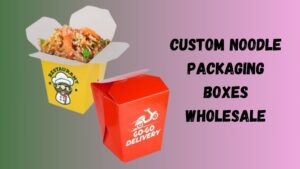Maximising Your Tax Return: Expert Tips from Your Local Accountant
Tax time can feel a little overwhelming, but with the right advice and planning, you can maximise your tax return and keep more money in your pocket. Whether you’re a small business owner, a freelancer, or an employee, there are simple steps you can take to make sure you’re not leaving any money behind when it comes to your tax return. In this blog, we’ll share some expert tips from your St Albans accountant to help you navigate the process and get the most out of your return.
1. Get Organised Early
The key to a stress-free tax return is being organised. The earlier you start, the more time you’ll have to gather all the necessary paperwork. This includes things like your income statements (group certificates or PAYG), receipts for work-related expenses, and any other documents related to investments or business earnings.
It’s a good idea to keep all your receipts throughout the year, whether they’re for work-related purchases or personal deductions. Using an app to track your receipts and expenses can save you time when it comes to filing your tax return.
Pro Tip:
Set aside time each month to update your records. The more organised you are, the easier it will be when it’s time to lodge your return.
2. Understand What You Can Claim
Knowing what you can and can’t claim is essential for maximising your tax return. The Australian Taxation Office (ATO) allows you to claim a wide range of expenses, but it’s important to know what’s legitimate.
Common Work-Related Claims
- Uniforms and Clothing: If you’re required to wear a uniform or protective clothing for work, you can claim these expenses.
- Home Office: If you work from home, you may be able to claim a portion of your rent, utilities, internet, and office supplies.
- Work Tools and Equipment: If you buy tools or equipment for your job, you can usually claim them as a deduction. Keep in mind that you need to use them primarily for work purposes.
- Travel Expenses: If you drive for work, you can claim a portion of your car expenses. Make sure you keep a logbook to track your business kilometres.
Pro Tip:
Only claim for things you actually use for work. The ATO is strict about personal items being mixed with work claims.
3. Keep Track of Your Business Expenses
For small business owners, freelancers, and contractors, tracking business expenses is key to reducing your taxable income. Business expenses like office supplies, software subscriptions, and even business-related travel can all be claimed.
The ATO allows businesses to deduct the costs associated with running your business, including things like advertising, professional fees, and even the cost of running your vehicle if it’s used for business purposes.
Pro Tip:
Keep detailed records of all your expenses. The more proof you have, the easier it will be to claim them.
4. Superannuation Contributions
Did you know that making extra super contributions can help reduce your taxable income? If you’re eligible, consider making voluntary contributions to your super fund before the end of the financial year. Not only will this benefit your future retirement, but it can also lower your tax bill for the current year.
For self-employed individuals, you can claim a tax deduction for contributions you make to your own super fund. Just make sure you do this before 30 June to maximise your deductions.
Pro Tip:
If you’re employed, check with your employer to see if they match additional voluntary contributions. This is a great way to boost your retirement savings while reducing your tax.
5. Keep Track of Your Depreciation
Depreciation is the process of claiming back the cost of assets that lose value over time, such as computers, office furniture, or machinery. For business owners, keeping track of depreciation can help reduce your taxable income and, ultimately, your tax bill.
The ATO allows you to claim depreciation on any asset that’s used in your business. Whether it’s a printer, a laptop, or even a car, you can spread the cost over several years, depending on the asset’s life expectancy.
Pro Tip:
Make sure you have all the necessary documents, such as receipts or purchase agreements, to support your depreciation claims.
6. Don’t Forget About Offsets and Rebates
There are also tax offsets and rebates you can claim, depending on your circumstances. Some common ones include:
- Low Income Tax Offset (LITO): If your income is below a certain threshold, you may be eligible for this offset.
- Senior Australians and Pensioner Tax Offset: If you’re a senior or a pensioner, you may qualify for this offset to reduce your tax bill.
- Private Health Insurance Rebate: If you have private health insurance, you may be entitled to a rebate, which can reduce your overall tax liability.
Pro Tip:
Make sure to check if you qualify for any offsets or rebates before lodging your return. They can have a big impact on your refund.
7. Seek Professional Help When Needed
While it’s great to take charge of your tax return, sometimes it’s worth getting professional help. An experienced St Albans accountant can ensure you’re claiming everything you’re entitled to and help you avoid any costly mistakes.
A tax agent can help you navigate the complexities of the tax system, provide advice on structuring your business, and ensure that you’re staying compliant with all the latest regulations. Plus, if you’ve got a more complicated financial situation—like multiple income streams or investments—having an accountant on your side can save you time, stress, and potentially money.
Pro Tip:
Book a consultation with a St Albans accountant who understands your industry. They’ll be able to provide tailored advice that’s specific to your needs.
8. Don’t Leave It Until the Last Minute
Filing your tax return at the last minute can increase your chances of making errors or missing out on deductions. The ATO provides a deadline for individual tax returns, which is typically 31 October. But don’t wait until the last week to get started!
If you’re unsure about how to file your return, or if you need more time, you can always ask for an extension. But it’s better to plan ahead and submit early to avoid any last-minute headaches.
Pro Tip:
If you lodge through a tax agent, they can often help you get an extension if needed.
Conclusion
Maximising your tax return doesn’t have to be a headache. With a little organisation and understanding of what you can claim, you can reduce your taxable income and potentially increase your refund. Make sure to keep track of your expenses, take advantage of available deductions, and consult with a tax professional if necessary. Your St Albans accountant is there to help, and getting the most out of your tax return is one of their specialties.
Tax time is a great opportunity to get your finances in order and make sure you’re not missing out on any entitlements. Start planning early, and you’ll find that tax time can be a lot less stressful—and a lot more rewarding!
Have questions about maximising your tax return?
Get in touch with your local St Albans accountant today. They can provide tailored advice and help ensure you get the most out of your return.







